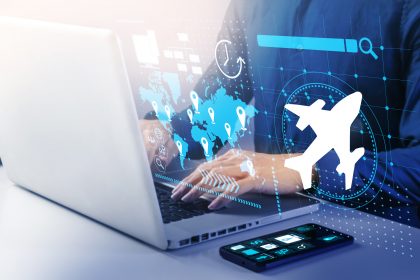Hello Millenial Readers,
The travel industry has undergone a profound transformation in recent years, largely due to the rapid rise of two influential generations: Gen Z and Millennials. Born into the digital age, these tech-savvy cohorts have grown up with smartphones, social media, and on-demand services, shaping their travel preferences and expectations. As the largest demographics of travellers today, the impact of Generation Z and Millennials on the travel industry cannot be overstated.
But how has tech impacted the travel industry and customer experience in recent years? The travel industry has long been a leading force in terms of tech innovations and implementations. In today’s blog, we will take a deep dive (unfortunately not into the swimming pool!) into all things tech and travel to see where the industry is at and where it’s potentially heading.
Travel Apps
Over the last decade, travel apps have increased in popularity thanks to their convenience and ease of use. Whilst your mind may instantly jump to thinking of airline apps such as EasyJet and RyanAir, there has also been a sharp rise in travel apps to help users find accommodation and luxury breaks such as AirBnb and Secret Escapes.
When it comes to travel, consumer behaviour is rapidly changing. Individuals now spend 10-20 hours on average researching a trip before making any commitment. Not only that, travellers are also much keener on finding hidden gems and getting a taste of authentic life in their chosen destination. These consumers’ demands have led to an increased appetite for travel apps that allow thorough research so consumers can find that special town or unique home that fulfils all of their desires.
Online Check-In
Online check-in has been revolutionary for the travel industry as it has massively decreased waiting times in airports over the last few years. More recently, online check-in processes have been adopted by hotels and other accommodations as the tech saves time for travellers, reducing staffing costs for hotels as customers can check without engaging with a member of staff and increasing overall efficiency. As a result of the popularity of online check-in, the number of self-check-in kiosks in hotels and airports has also increased tremendously as businesses strive to remain competitive within a huge industry.
Social Media
Social media has paved the way for group travelers. Online communities such as Gals Who Travel and Trending Travel allow users to meet other lone travelers before meeting up and joining a planned trip full of excursions and activities.
Not only that, social media has also largely influenced a new wave of research for travellers as many millennials and Gen-Z go to Instagram and TikTok for destination inspiration. Whilst Gen-X and older millennials are more likely to stick with a travel agent to organize their entire trip, the younger generations are desperate for a sense of adventure and an insight into the authentic culture of the location they’re visiting. Social media provides them with insight into these hidden treasures and allows them to find activities and destinations where they can ‘live like the locals which is exactly what they crave.
Internet Of Things
The Internet Of Things (IoT) is hugely impacting the travel industry as connected devices, smart sensors, and other tech is being utilized to improve systems and make for more efficient process from start to finish. In many airports across the world, the IoT is being utilized to monitor traffic flow and keep track of important equipment. Furthermore, passengers themselves are utilizing tech such as AirTags to keep tabs on how their luggage is migrating across borders in addition to smart suitcases which allow you to lock them remotely and even weigh themselves.
Recognition Technology
Fingerprint recognition technology transformed airport security way back in 2001 when the USA made it mandatory for those entering and exiting the country to use the tech. Since then, recognition technology has come a long way and facial recognition has even seeped into our everyday lives as we use our faces to open our phones, access banking, and more.
Nowadays, facial recognition and biometric identification are technologies that are used to make passport checks much faster and more efficient. Reducing queues and allowing employees to focus on the important things.
Final thoughts, since technology has a huge impact on the travel and tourism industry across the globe it must adapt to the unique needs and expectations of Gen Z and Millennials. As these generations continue to shape the future of travel, embracing technology and leveraging its potential to deliver personalized, sustainable, and immersive experiences will be key to capturing their loyalty and driving the industry forward. Whilst it’s come a long way, we’re pretty sure there’s still a long way to go when it comes to biometrics, and the IoT and we can’t wait to sit back and watch the latest technologies unfold.

